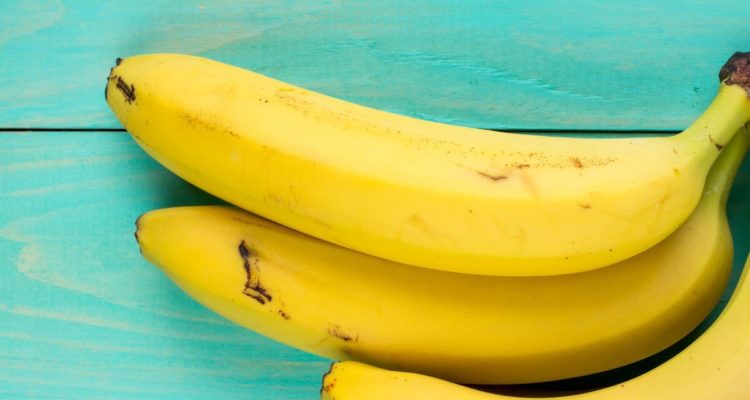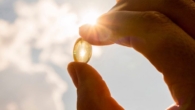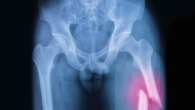
Myths about food: the benefits and harms of bananas, how to choose and where to store them
1
Even on a strict fat-burning diet, bananas will not hurt, they are perfectly digestible, and bananas are berries that grow from a flower with one ovary. Each such berry contains several seeds. Bananas are rich in potassium, fiber, vitamins and antioxidants. This fruit is a great snack and addition to breakfast. We explain why bananas are good for the body, who they can harm, which ones are better to buy in the store and why they should not be stored in the refrigerator.
Myths about bananas
There is an opinion that you cannot eat bananas if you are on a diet. But this is a myth. Bananas are no more filling than other berries and fruits. It's all about balance and proportions. Bananas are rich in vitamin B6, minerals and potassium, which are necessary for the normal functioning of the body. For those following a strict diet, these beneficial substances may not be adequately supplied with food, so weight loss experts recommend not to ignore this fruit.
The second myth suggests that eating bananas slows down the work of the intestines. However, in fact, they are rich in fiber and pectin, which promotes good digestion. There is a lot of sugar in bananas, and this fruit is harmful for diabetics – another myth. Bananas are rich in fiber, and eating such products reduces the risk of developing type 2 diabetes.
The benefits of bananas
- diabetes;
- heart diseases;
- diverticulitis;
- constipation.
Bananas are a high-energy product, so they quickly increase the level of sugar in the blood, giving a person a charge of energy for physical and mental exertion. Up to 80% of bananas consist of starch and pectin, which affect the body as prebiotics – substances of non-microbial origin. They are not absorbed in the small intestine, but create favorable conditions for the creation of normal microflora of the large intestine.
Regular consumption of bananas reduces the risk of developing diabetes. Experts from the American Diabetes Association recommend including fruits in your weekly diet. In addition, bananas reduce the risk of developing cardiovascular diseases due to the potassium in their composition. If the body receives about 1.4 g of potassium every day, the risk of heart health problems will decrease by almost 30%.
Specialists of the Research Center for Medicinal Plants and Economic Development conducted a study and found out that bananas contain polyphenols and flavonoids. These compounds act as antioxidants and help cells regenerate. In addition, they slow down the aging process, preserve the beauty of the skin, hair and nails. Bananas also contain vitamin C, which supports immunity and skin health.
Calorie and nutritional value of bananas
100 g of banana (one medium-sized fruit) contains:
- kilocalories – 88;
- proteins – 0.74 g;
- fats – 0.29 g;
- carbohydrates – 23 g;
- food fibers – 4.6 g.
>
For whom bananas are dangerous
Green and unripe bananas are high in sodium. A nutritionist warned that such a fruit can cause a laxative effect, so it is better to avoid it for people suffering from intestinal disorders or diseases of the gastrointestinal tract. Unripe bananas can cause bloating or flatulence.
In addition, bananas should not be included in the diet of people with diseases of the cardiovascular system. The fact is that this fruit helps remove fluid from the body. This leads to blood clotting and possible clogging of blood vessels, which can trigger the formation of a blood clot. Bananas are also not recommended for people who have had a stroke or heart attack.
In addition, bananas can harm children. These fruits are unusual for the stomach and intestines of a growing organism, so you should be careful with treats, otherwise the child will begin to suffer from bloating and colic.
If there are bananas in small quantities, they do not pose a health risk , however, excessive consumption of fruits can have a negative effect on health. In particular, overripe bananas, which are eaten in large quantities, pose a threat. They contain substances capable of causing:
- headache;
- chronic drowsiness;
- destruction of tooth enamel;
- allergic reactions;
- immune system imbalance
How to do it right choose bananas
Almost all bananas are brought to Ukraine from South American countries. In order to buy a quality fruit, experts advise to remember five criteria.
- A quality banana should have a streamlined shape.
- The skin should be smooth and matte.
- The color of the banana should be bright yellow, the greenish color of the fruit indicates that it is not yet ripe.
- If there are black spots on the peel, then the process of rotting has begun in the bananas, it is better not to buy such fruits.
- li>
- A banana with a gray tint indicates that it was frozen, you should refuse to buy such a fruit.
>
Where and how to store bananas
To prevent bananas from darkening, it is better to tightly wrap the fruit with foil or cling film. This protects bananas from ethylene, which is found in other fruits. This method of storage is suitable if you put fruits and berries in one basket.
To keep ripe bananas as long as possible, it is better to store them at a temperature of 7 to 10°C. Many people are used to putting bananas in the refrigerator, but this method is not correct. In the cold, the fruits darken quickly. However, if bananas do end up in the refrigerator, it is better to separate them from other products. It is not necessary to tear the bunch, if it is stored in its pristine form, it will “live” much longer. It is also not recommended to leave bananas under sunlight.









Leave a Reply